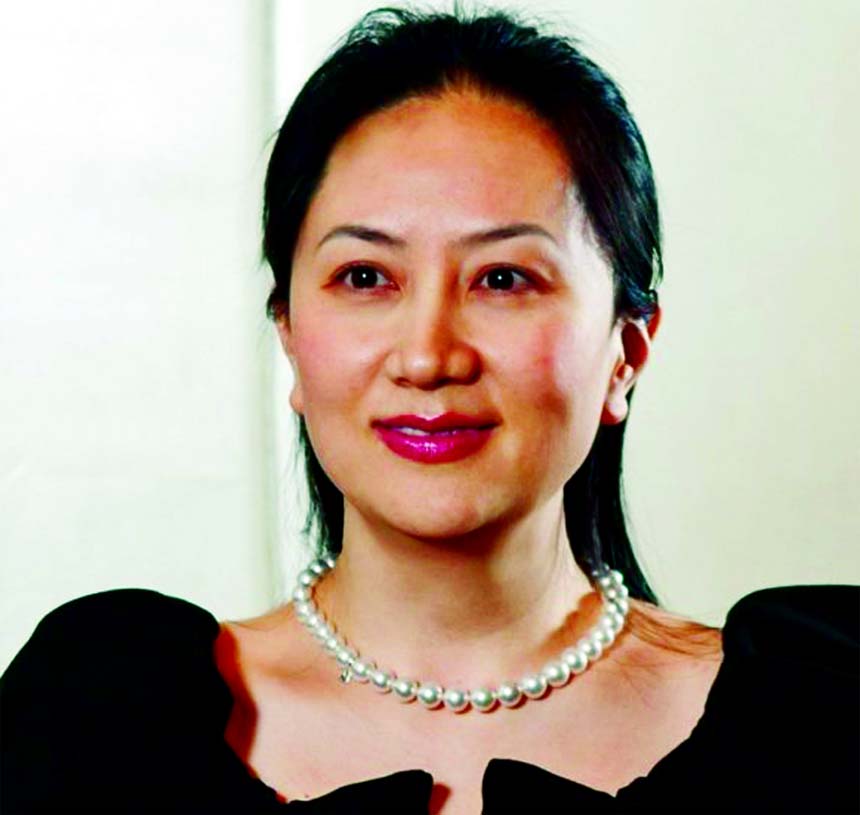
AP, Washington :
The dramatic arrest of a Chinese telecommunications executive has driven home why it will be so hard for the Trump administration to resolve its deepening conflict with China.
In the short run, the arrest of Huawei’s chief financial officer heightened skepticism about the trade truce that Presidents Donald Trump and Xi Jinping reached last weekend in Buenos Aires, Argentina. On Thursday, U.S. stock markets tumbled on fears that the 90-day cease-fire won’t last, before regaining most of their losses by the close of trading.
The Huawei executive, Meng Wanzhou, faces extradition to the United States, and a bail hearing was set for Friday.
But the case of an executive for a Chinese company that’s been a subject of U.S. national security concerns carries echoes well beyond tariffs or market access. Washington and Beijing are locked in a clash over which of the world’s two largest economies will command economic and political dominance for decades to come.
“It’s a much broader issue than just a trade dispute,” said Amanda DeBusk, chair of the international trade practice at Dechert LLP. “It pulls in: Who is going to be the world leader essentially.”
Meng was detained by Canadian authorities in Vancouver as she was changing flights Saturday – the same day that Trump and Xi met at the Group of 20 summit in Argentina and produced a cease-fire in their trade war. The Globe and Mail newspaper, citing law enforcement sources, reported that she is suspected of trying to evade U.S. sanctions on Iran.
The British bank HSBC is cooperating with U.S. authorities in its investigation, people familiar with the matter said Thursday.
Huawei, the world’s biggest supplier of network gear used by phone and internet companies, has long been seen as a front for spying by the Chinese military or security services, whose cyber-spies are widely acknowledged as highly skilled. A U.S. National Security Agency cybersecurity adviser, Rob Joyce, last month accused Beijing of violating a 2015 agreement with the U.S. to halt electronic theft of intellectual property.
Other nations are increasingly being forced to choose between Chinese and U.S. suppliers for next-generation “5G” wireless technology. Washington has been pushing other countries not to buy the equipment from Huawei, arguing that the company may be working stealthily for Beijing’s spymasters.
Beijing protested Meng’s arrest but signaled that it doesn’t want to disrupt progress toward settling its trade dispute with the Trump administration. Chinese Commerce Ministry spokesman Gao Feng said China is confident it can reach a deal during the 90 days that Trump agreed to suspend a scheduled increase in U.S. import taxes on $200 billion worth of Chinese products.
U.S. national security adviser John Bolton told NPR that he knew of the pending arrest in advance.
The dramatic arrest of a Chinese telecommunications executive has driven home why it will be so hard for the Trump administration to resolve its deepening conflict with China.
In the short run, the arrest of Huawei’s chief financial officer heightened skepticism about the trade truce that Presidents Donald Trump and Xi Jinping reached last weekend in Buenos Aires, Argentina. On Thursday, U.S. stock markets tumbled on fears that the 90-day cease-fire won’t last, before regaining most of their losses by the close of trading.
The Huawei executive, Meng Wanzhou, faces extradition to the United States, and a bail hearing was set for Friday.
But the case of an executive for a Chinese company that’s been a subject of U.S. national security concerns carries echoes well beyond tariffs or market access. Washington and Beijing are locked in a clash over which of the world’s two largest economies will command economic and political dominance for decades to come.
“It’s a much broader issue than just a trade dispute,” said Amanda DeBusk, chair of the international trade practice at Dechert LLP. “It pulls in: Who is going to be the world leader essentially.”
Meng was detained by Canadian authorities in Vancouver as she was changing flights Saturday – the same day that Trump and Xi met at the Group of 20 summit in Argentina and produced a cease-fire in their trade war. The Globe and Mail newspaper, citing law enforcement sources, reported that she is suspected of trying to evade U.S. sanctions on Iran.
The British bank HSBC is cooperating with U.S. authorities in its investigation, people familiar with the matter said Thursday.
Huawei, the world’s biggest supplier of network gear used by phone and internet companies, has long been seen as a front for spying by the Chinese military or security services, whose cyber-spies are widely acknowledged as highly skilled. A U.S. National Security Agency cybersecurity adviser, Rob Joyce, last month accused Beijing of violating a 2015 agreement with the U.S. to halt electronic theft of intellectual property.
Other nations are increasingly being forced to choose between Chinese and U.S. suppliers for next-generation “5G” wireless technology. Washington has been pushing other countries not to buy the equipment from Huawei, arguing that the company may be working stealthily for Beijing’s spymasters.
Beijing protested Meng’s arrest but signaled that it doesn’t want to disrupt progress toward settling its trade dispute with the Trump administration. Chinese Commerce Ministry spokesman Gao Feng said China is confident it can reach a deal during the 90 days that Trump agreed to suspend a scheduled increase in U.S. import taxes on $200 billion worth of Chinese products.
U.S. national security adviser John Bolton told NPR that he knew of the pending arrest in advance.

